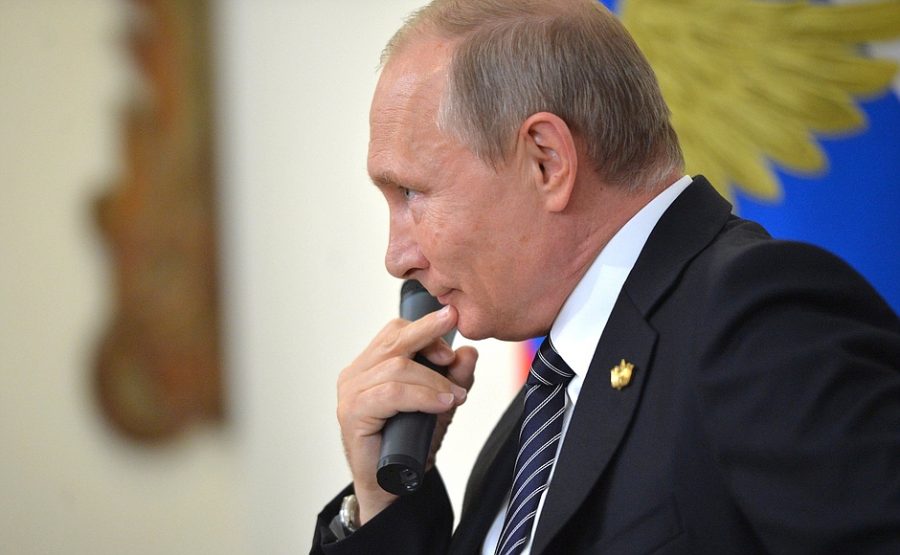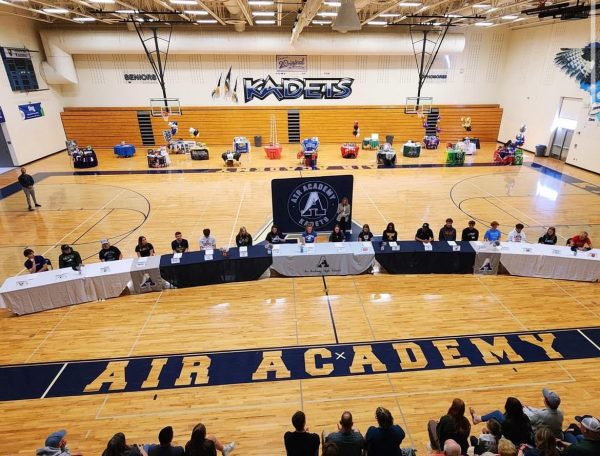Russia’s Vote in the US Election
Putin on the bits.
American intelligence officials have concluded that Russian President Vladimir Putin “ordered an influence campaign in 2016 aimed at the US presidential election” and sought to disparage Democratic nominee Hillary Clinton while promoting “a clear preference for President-elect Donald Trump.”
This information comes from a declassified US intelligence report, released on January 6, that details Russia’s efforts to undermine the electoral system and Hillary Clinton in particular. Earlier in the day, top US intelligence officials briefed Donald Trump on the report’s main determinations. The President-elect acknowledged that Russia had sought to hack the DNC, but he insisted that the Russian cyber campaign had no effect on the 2016 election.
The declassified report, reflecting the assessments of the CIA, the FBI, and the NSA, evaluates that Putin had “aspired to help President-elect Trump’s election chances when possible by discrediting Secretary Clinton and publicly contrasting her unfavorably to him.” It detailed a broad cyber campaign consisting of hacking and the extensive use of social media and trolls. (A troll is a person who makes a deliberately offensive or provocative online post.) Yet, officials have publicly concluded that there was no evidence of tampering with the tally of the vote on November 8.
The report, however, does not back Trump on his statement that the cyber activity had no effect on the election. It states, “We did not make an assessment of the impact that Russian activities had on the outcome of the 2016 election,” and goes on to add that it was not the responsibility of the report to analyze American political processes or public opinion.
Released emails of the Democratic National Committee and of the chairman of the Clinton campaign, John D. Podesta, were a hot topic on news channels during the presidential race. Weighing in on this subject, the report concluded “with high confidence” that the GRU, Russia’s main military intelligence unit, created a website, DCLeaks.com, to release these emails. When the emails released to the website were not generating sufficient attention, the GRU “relayed material it acquired from the DNC and senior Democratic officials officials to Wikileaks.” Julian Assange, the founder of Wikileaks, has strongly denied that Russia was the source of the emails it published.
Commenting on motives behind Vladimir Putin’s actions, the report makes clear that the Russian president favored Mr. Trump because he had previous success dealing with “Western political leaders whose business interests made them more disposed to deal with Russia,” and he viewed the President-elect as a more likely ally in forming a counterterrorism coalition against the Islamic State. Donald Trump has portrayed his eagerness to do so in interviews with various news outlets.
The key to the report’s assessment is that Russia’s motives “evolved over the course of the campaign.” When it seemed that Clinton was likely to be the winner of the election, the Russian effort focused on “undermining her future presidency.” The report noted that President Putin had a particular hostility towards the Democratic nominee because he believed she had incited protests against him back in 2011.
Though, the report also remarked that the Russian attacks began long before anyone could have known that Donald Trump would become the Republican nominee, with some cyber attacks beginning as early as July 2015 when Russian intelligence first gained access to DNC networks. This further clarifies the purpose of the Russian influence campaign to sabotage Hillary Clinton rather than to support Trump.
View the full released intelligence report here at the New York Times.

Shalom le'kulam, my name is Jonathan Flat and I am the Managing Editor for this outstanding school newspaper. As a 16-year-old in the 12th grade, I'll...








